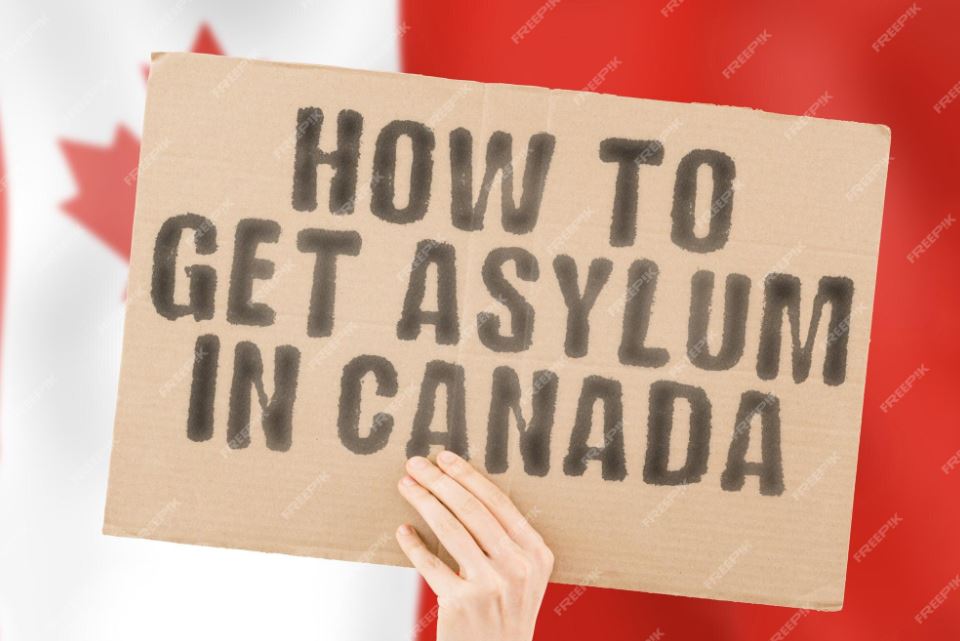Introduction
Seeking asylum is a human right, and it allows individuals to escape persecution or harm in their home country. Canada is known as a welcoming country for refugees, and it has one of the most generous refugee systems in the world. The process of seeking asylum in Canada may seem daunting, but with the right information, it can be a straightforward and successful journey.
What is Asylum and Who Can Apply?
Asylum is a form of protection given by a country to individuals who are unable or unwilling to return to their home country due to fear of persecution. This persecution can be based on various factors such as race, religion, nationality, political opinion, or membership in a particular social group.
Anyone can apply for asylum in Canada, regardless of their nationality, immigration status, or country of origin. It is essential to note that seeking asylum is not the same as immigrating to Canada; it is a separate process and requires different criteria.
The Process of Seeking Asylum in Canada
The process of seeking asylum in Canada involves multiple steps and can take several months or even years to complete. Here is an overview of the asylum process in Canada:
- Arrival in Canada: The first step is to physically arrive in Canada, either by land or air. It is crucial to have a valid passport and travel documents when entering the country.
- Making a Claim for Protection: Once in Canada, individuals must claim protection within strict time limits. This can be done at a port of entry or an Immigration, Refugees, and Citizenship Canada (IRCC) office.
- Eligibility Interview: After submitting the claim, individuals will go through an eligibility interview with an immigration officer. During this interview, the officer will ask questions to determine if the person meets the criteria for refugee protection under Canadian law.
- Security and Criminality Screening: The Canadian government conducts background checks on all individuals seeking asylum to ensure the safety and security of its citizens.
- Refugee Protection Division (RPD) Hearing: If deemed eligible, the individual’s case will be heard by the RPD, an independent tribunal responsible for making decisions on refugee claims.
- Appeal Process: If a claim is denied, there is a process for appealing the decision through the Refugee Appeal Division (RAD).
- Final Decision: Once all avenues of appeal have been exhausted, and if the claim is approved, individuals will receive permanent resident status in Canada. If rejected, they may need to leave Canada.
Challenges Faced by Asylum Seekers
Seeking asylum can be a challenging process, both physically and emotionally. Asylum seekers often leave behind everything they know and face uncertainty in a new country. Some of the challenges they may encounter include:
- Language barrier: Many asylum seekers do not speak English or French, Canada’s official languages.
- Financial instability: Asylum seekers are not eligible for most social assistance programs, which can make it challenging to support themselves financially.
- Lack of support: Asylum seekers may not have a support system in Canada, making it challenging to navigate the asylum process.
- Mental health struggles: The trauma of leaving one’s home country and the uncertainty of the asylum process can take a toll on an individual’s mental health.
Resources Available for Asylum Seekers
The Canadian government and various organizations provide resources and support for individuals seeking asylum in Canada. Some of these resources include:
- Government-funded health care: Asylum seekers have access to medical services through the Interim Federal Health Program (IFHP).
- Settlement Services: Numerous settlement organizations across Canada provide support and assistance with housing, employment, language learning, and other essential services.
- Legal Aid: Low-income asylum seekers can receive legal assistance through Legal Aid offices across Canada.
- Mental Health Support: Many organizations provide mental health support and resources specifically for refugees and asylum seekers.
Conclusion
Seeking asylum in Canada can be a complex process, but it is a crucial step towards finding safety and protection. The Canadian government continues to make efforts to improve the asylum system, making it more accessible and efficient. Asylum seekers should not hesitate to seek help and support during this journey, as there are many resources available to assist them in their new home. So if you or someone you know is seeking asylum in Canada, remember that it is a fundamental human right, and with the right information and support, it can be a successful process. So don’t lose hope; Canada is waiting to welcome you with open arms.
